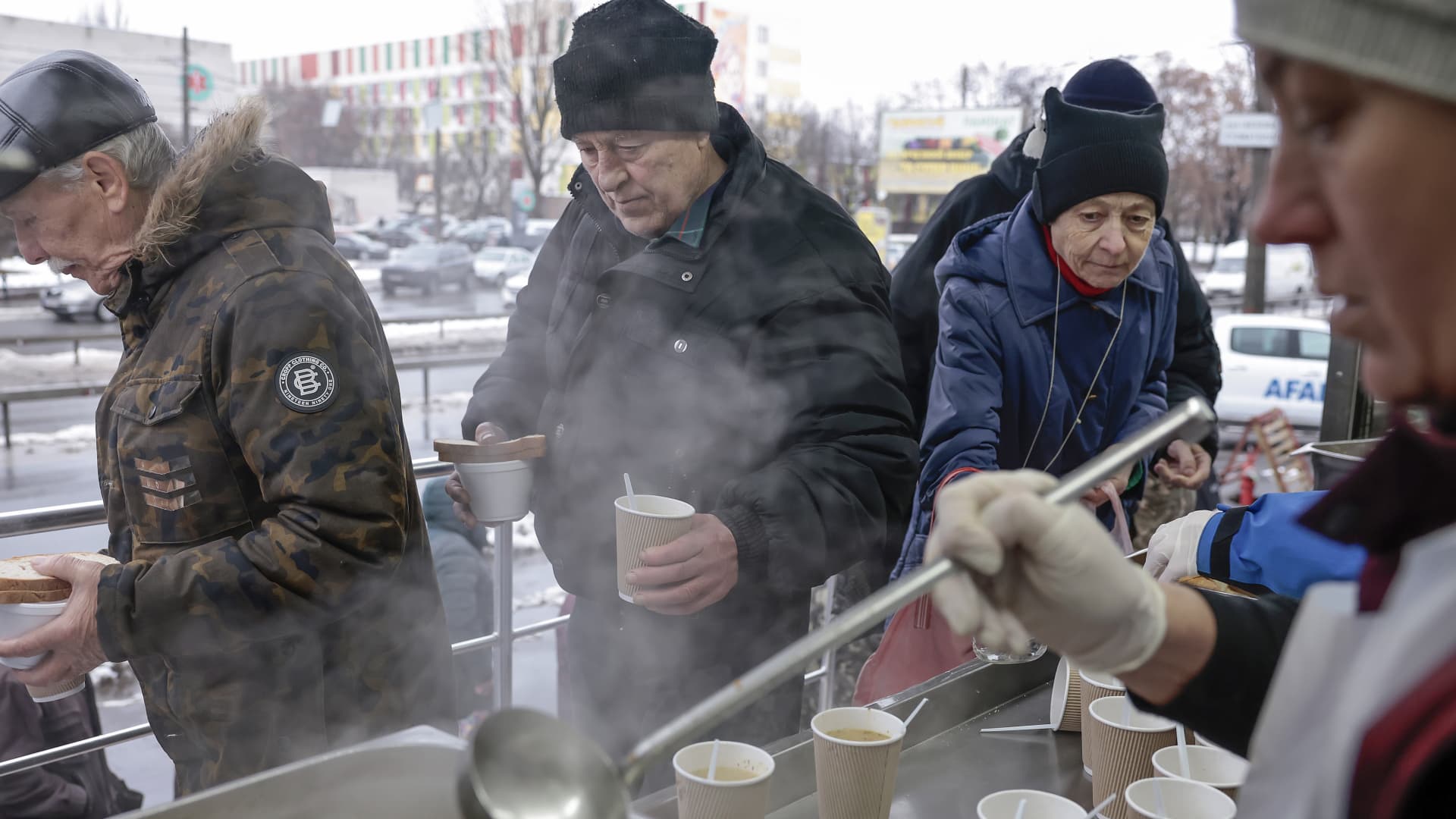WASHINGTON — Russian occupying forces in Ukraine have employed starvation tactics on civilians by targeting food lines, agricultural harvests and water infrastructure, according to a team of international lawyers helping Kyiv investigate alleged war crimes.
The investigators focused their efforts on the city of Chernihiv, which was under siege for a little over two months before Russian troops were expelled from the northern Ukrainian city.
Catriona Murdoch, a lawyer and expert in starvation-related crimes, described Chernihiv as the “tip of the iceberg in [Russian President Vladimir] Putin’s calculated plan to terrorize, subjugate and kill Ukrainian people.”
The new report, which took six months to assemble and was released Thursday, details routine Russian strikes in concentrated areas where civilians gathered to receive humanitarian aid and food supplies.
“I think our conclusion at this point is that we believe that this would certainly constitute a violation of international humanitarian law,” Murdoch, partner and head of starvation portfolio at international human rights law firm, Global Rights Compliance, told CNBC.
“The more information we have gathered and analyzed, the more we can say with confidence,” added Murdoch, who leads a Mobile Justice Team, a group of international lawyers and investigators supporting the office of Ukraine’s prosecutor general in starvation crimes.
Mobile Justice Teams are one component of the Atrocity Crimes Advisory Group, which is funded by the U.S. State Department, European Union and the U.K.’s Foreign, Commonwealth and Development Office.
The Kremlin has previously denied that its forces commit war crimes or deliberately target civilians and related critical infrastructure. The Russian Embassy in Washington, D.C., did not immediately respond to CNBC’s request for comment.
The report details one such incident on the morning of March 16, 2022, outside a supermarket, which resulted in the deaths of at least 20 civilians.
According to the report, about 90 people were waiting in line near the Soyuz grocery store when an explosive with a wide impact range was detonated. Soyuz, according to the lawyers, was known as a place to collect bread deliveries if the store was closed.
The lawyers identified heavy artillery weapon systems that could have been used in the Soyuz attack and found evidence that Russian drones were operating in the area and could have provided imagery to direct Russian fire.
Subsequent attacks occurred at nearby hospitals “substantially impacting power supplies and thus creating challenging circumstances to treat those injured or dying,” according to the report.
The lawyers and investigators also found that infrastructure related to Chernihiv’s water supply was targeted by aerial bombing.
Elsewhere in Ukraine, the investigators found that Russian forces prioritized stealing harvests and destroying agricultural machinery.
Murdoch, who recently returned from Chernihiv, added that she was confident that the perpetrators can be identified.
